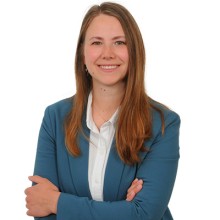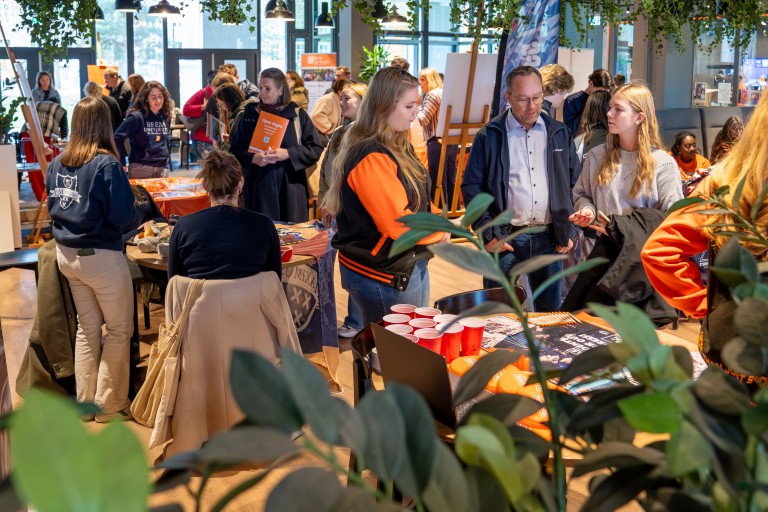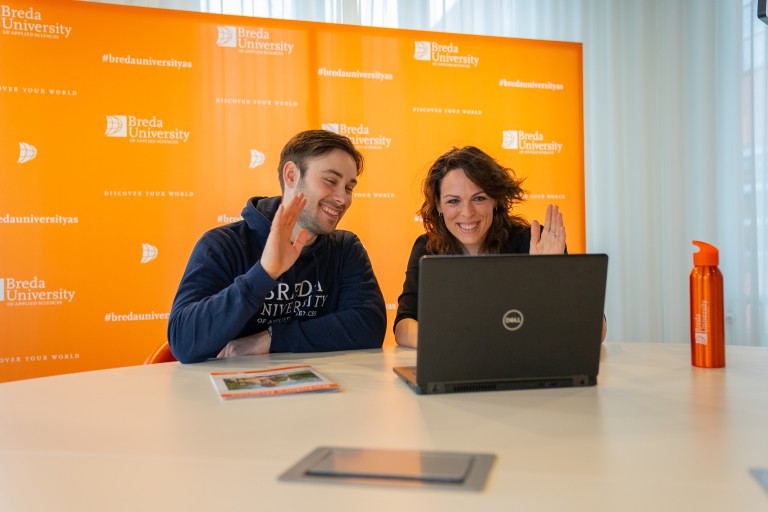
Master's programmes
Do you want to pursue further studies after your bachelor's or hone your professional skills, and are you therefore looking for a master's degree? Discover, compare and choose your master's programme at BUas.
Discover our master’s and pre-master’s degrees
Choose a form of education
What are the possibilities?
Do you want to pursue further studies after your bachelor’s? At BUas, you can move on straight to a professional master’s programme that aligns with your bachelor's degree. If you want to attend a university master's, chances are you will need a pre-master's degree to be admitted. For admission to a Master of Science programme - whether at a research university or a university of applied sciences - you will need a Bachelor of Science or a pre-master's degree.

Do you want to study a master’s degree while working? At BUas, we offer three different executive master’s programmes. These programmes are well-suited to be combined with work experience and can be undertaken alongside your job.

- Move on to further study after a bachelor’s degree
-
Do you want to pursue further studies after your bachelor’s? At BUas, you can move on straight to a professional master’s programme that aligns with your bachelor's degree. If you want to attend a university master's, chances are you will need a pre-master's degree to be admitted. For admission to a Master of Science programme - whether at a research university or a university of applied sciences - you will need a Bachelor of Science or a pre-master's degree.

- Studying alongside your professional career
-
Do you want to study a master’s degree while working? At BUas, we offer three different executive master’s programmes. These programmes are well-suited to be combined with work experience and can be undertaken alongside your job.

Frequently asked questions
- What is a professional master’s and what can you do with it?
A professional master’s is follow-up to a professional bachelor’s. It enables you to further deepen your knowledge and skills within a specific field of study. With a professional master’s degree, you can advance in your career and take on more responsibilities. It can also open doors to managerial positions or offer opportunities to conduct independent research.
- What is a pre-master’s and why do you need it?
If you are not directly admissible to a master’s, you may consider attending a pre-master’s degree. This is a transition track that prepares you for a master’s degree. During the pre-master’s track, you will acquire all the knowledge and skills required for the master’s. After completing the pre-master’s degree, you will have direct access to the master’s programme. If you obtained a professional bachelor’s and want to do an academic master’s, you will first need to complete a pre-master’s degree. For the professional master’s programmes, a pre-master’s is not required.
- What are the costs of a master’s programme?
The cost of a master's degree can vary. It depends on the type and duration of the programme. Just consult the programme pages on our website for specific information on tuition fees and any financial support. BUas also has scholarships available.
Study choice activities

Open Day
Our doors are open to welcome you with programme presentations, info markets, a campus tour and more!

Presentations
These orientation videos cover all aspects of our master's programmes. Watch the video at a time that suits you.
The advantages of a professional master’s degree
- No pre-master’s degree needed
You do not need a pre-master’s to be admitted to a professional master’s. This will save you one year of education and a few thousand euros in education costs. - A professional master’s is the same level as an academic master’s
Did you know that a professional master’s is equal to level 7? So, it is actually the same level as an academic master’s programme. - Professional master’s degrees have a practical focus, offering immediate added value
While you earn a master’s degree, the aim is not to train as a researcher. Instead, the curriculum imparts knowledge that is directly applicable in the professional field, allowing you to experience the impact of your learning from the very first day of your studies.
